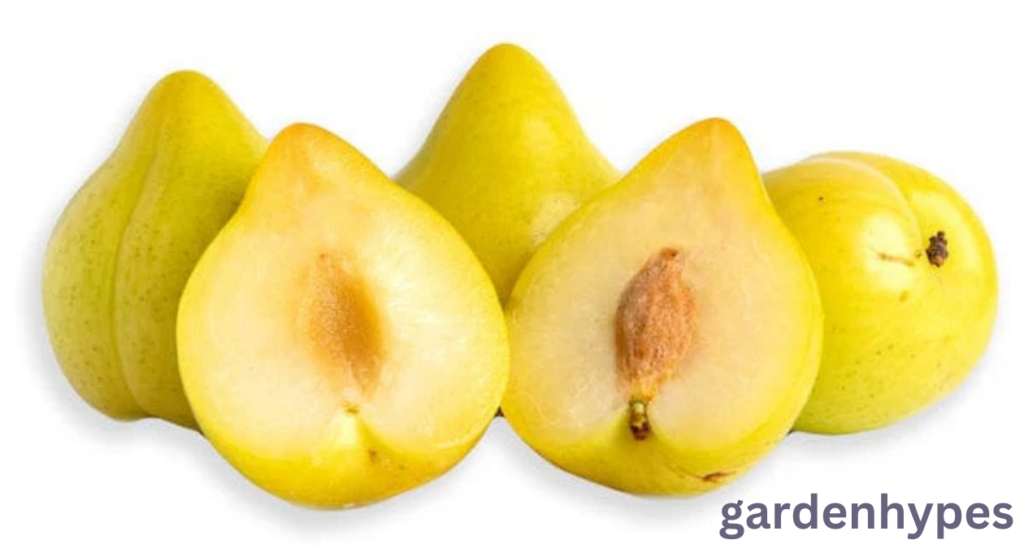Lemon Plum A Unique Blend of Sweet and Tangy 2024
What Is a Lemon Plum?
Lemon plum is a unique and exotic fruit that hails from Chile, South America. Known for its vibrant color transformation and distinctive flavor, this fruit is a rare gem that stands out among the more common fruits. It gets its name from its initial lemon-like yellow color and mild citrusy tang.
click in link Strawberry Shortage
Appearance and Flavor Profile
Color Transformation
One of the most exciting features of the lemon plum is its ripening process. Initially bright yellow, the fruit gradually turns a beautiful reddish-orange hue as it ripens.
Sweetness and Tanginess Balance
While unripe lemon plums have a slightly tart taste, fully ripe ones are juicy and sweet, with a perfect balance of flavors that make them a delightful snack.
Nutritional Benefits of Lemon Plum
Vitamins and Minerals
Lemon plums are packed with essential nutrients like Vitamin C, Vitamin A, and dietary fiber, making them a healthy addition to your diet.
Low-Calorie Snack Option
With their low-calorie count, lemon plums are ideal for those seeking a guilt-free sweet treat.
How to Eat a Lemon Plum
Ripe vs. Unripe Lemon Plums
Unripe lemon plums can be enjoyed if you prefer a tangy flavor, but they are at their best when fully ripe and soft.
click in link Strawberry Shortage
Tips for Maximum Flavor
Let the plums sit at room temperature until they achieve a deep red hue. This ensures the sweetest and juiciest experience.
Where Do Lemon Plums Grow?
Countries of Origin
Lemon plums are primarily grown in Chile and exported to various countries, especially during their peak season.
Seasonal Availability
Typically available from late winter to early spring, these plums are a seasonal treat that’s worth the wait.
The Fascinating Ripening Process
Lemon plums undergo a dramatic transformation as they ripen. Their flesh becomes softer, and their sweetness intensifies, signaling that they’re ready to eat.
click in link Strawberry Shortage

How Lemon Plums Are Cultivated
Ideal Growing Conditions
Lemon plums thrive in temperate climates with plenty of sunlight and well-drained soil.
Agricultural Practices
Farmers carefully monitor the fruit’s growth to ensure optimal quality and flavor.
Cooking and Baking with Lemon Plums
Desserts and Recipes
Lemon plums are a fantastic ingredient for pies, tarts, and jams. Their sweet and tangy flavor adds a unique twist to traditional recipes.
Pairing Suggestions
Pair lemon plums with cheese, nuts, or even chocolate for a gourmet experience.
Health Benefits of Eating Lemon Plums
Antioxidant Properties
Rich in antioxidants, lemon plums help combat free radicals and support overall health.
Digestive Health
The fiber content in lemon plums promotes healthy digestion and prevents constipation.
How to Store Lemon Plums
Proper Storage Techniques
Store unripe plums at room temperature. Once ripe, refrigerate them to extend their shelf life.
Extending Shelf Life
To enjoy lemon plums for longer, consider freezing them for use in smoothies and desserts.
The History of Lemon Plums
Cultural Significance
Although relatively new to global markets, lemon plums have been enjoyed in Chile for generations.
click in link Strawberry Shortage

Introduction to Global Markets
Exported primarily to North America and Europe, lemon plums are gaining popularity among fruit enthusiasts worldwide.
Why Are Lemon Plums Rare?
Limited Production
Due to their short season and limited growing regions, lemon plums are considered a specialty fruit.
Specialty Fruit Status
Their rarity adds to their appeal, making them a sought-after delicacy.
Lemon Plum in Culinary Traditions
Lemon plums are used in various regional dishes and beverages, showcasing their versatility.
Sustainability and Lemon Plum Farming
Supporting local farmers and sustainable agricultural practices helps ensure the continued availability of this remarkable fruit.
click in link Strawberry Shortage
Conclusion
Lemon plums are a delightful blend of sweetness and tanginess, making them a must-try fruit for any food lover. With their unique appearance, rich nutritional benefits, and versatility in cooking, they truly deserve a place in your fruit basket. Next time you spot these colorful gems at the market, don’t hesitate to grab a few and savor their unique flavor.
FAQs
- What do lemon plums taste like?
Lemon plums have a sweet and tangy flavor that becomes sweeter as they ripen. - When are lemon plums in season?
They are typically available from late winter to early spring. - How do I know when a lemon plum is ripe?
A ripe lemon plum will have a reddish hue and feel soft to the touch. - Are lemon plums healthy?
Yes, they are rich in vitamins, antioxidants, and dietary fiber, making them a nutritious choice. - Can I cook with lemon plums?
Absolutely! They are great for desserts, jams, and even savory dishes.
